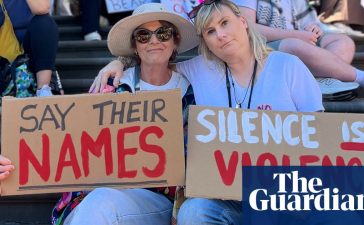BROCKTON — The U.S. Supreme Court is expected to rule by the end of June in a case that will affect the way cities across the United States are able to regulate homeless encampments — including Brockton.
On Monday, April 22, the justices heard oral arguments in an Oregon case on whether the enforcement of laws banning homeless people from sleeping on public property constitutes cruel and unusual punishment, which is prohibited by the Eighth Amendment.
Current precedent prevents cities from enforcing criminal restrictions on public camping unless the person has access to adequate temporary shelter.
“The city abides by the law. We are not allowed to forcefully remove people from any public space,” Mayor Robert Sullivan said in a statement.
Here’s what to know about the Supreme Court case that could change that.
‘Would be nice of them to have sympathy’ Brockton’s homeless population says city treats them poorly. That’s not what city says
The Oregon case that could change things in Brockton
City of Grants Pass, Oregon v. Johnson centers around two homeless people in Grants Pass, Oregon, who filed a lawsuit against the city claiming its policies against public sleeping, public camping and park exclusion ordinances violate the Eighth Amendment’s cruel and unusual punishment clause.
The Ninth Circuit court ultimately sided with the homeless individuals by extending the precedent decided under City of Boise, Idaho v. Martin in 2019, which prevents cities from enforcing criminal restrictions on public camping unless the person has access to adequate temporary shelter — ultimately declaring that the city could not punish people sleeping on public property without opening more inclusive and accessible shelters.
In response, the city challenged the current legal precedent, calling the 2019 decision a “judicial roadblock preventing a comprehensive response to the growth of public encampments,” according to the city’s appeal to the U.S. Supreme Court in August of 2023.
The Supreme Court is expected to issue a decision by the end of its term on June 30.
Public art or hostile architecture? 3D murals may evict homeless from Brockton bridges
How could Oregon case affect Brockton?
“It will tell us once and for all what restrictions, if any, we can impose upon homeless persons who decide to live on municipal property,” said Brockton City Councilor Winthrop Farwell Jr.
“But if we do nothing, and if, unfortunately, the decision comes down that you can’t have any restrictions, I’m really concerned about what trajectory we’re on and whether that can be sustained,” Farwell said.
“Someone could literally go down to City Hall, pitch a tent on the front lawn and under the current federal law, unless you have a place for them to stay, you can’t tell them to leave,” said Farwell.
But if the Supreme Court uses City of Grants Pass, Oregon v. Johnson to overturn the ruling precedent from the 2019 Idaho case, that could change.
‘Not easy being a business owner’ Is School Street bridge Brockton’s Mass and Cass? What can be done?
What is Brockton doing about its homeless encampments?
While the city is not allowed to forcibly remove people from public spaces, Brockton’s Director of Social Services Jazmine Bradsher will often go out and talk with unsheltered people, trying to get them into temporary shelters.
“The social services team has been at the D.W. Field Park encampment to assess the situation and check in on the individuals onsite,” Bradsher said.
“We do provide assistance to keep the sites from becoming dangerous to the residents and to visitors to the park,” she said. “We have had crews cleaning the site for the past several days and will continue to monitor the situation and address any issues that may arise.”
Whether or not the litigation changes, Sullivan says their ultimate goal is to get people housed.
“It is a complicated situation requiring an intentional, collaborative, long-term plan,” Sullivan said.
What would it take? How to end homelessness in Brockton — as luxury housing keeps popping up?
How many unsheltered homeless people currently live in Massachusetts?
Massachusetts has one of the lowest percentages of people experiencing homelessness who are unsheltered of any state, according to the U.S. Department of Housing and Urban Development’s 2023 Annual Homelessness Assessment Report (AHAR).
Out of the 19,141 people experiencing homelessness in Massachusetts in 2023, 1,362 — or 7.1% of the homeless population — were unsheltered, according to the AHAR. For comparison, in California, 68% of the homeless population was unsheltered in 2023.
However, according to the AHAR, Massachusetts was also one of the top five states with the largest increase in homelessness — with a homeless population increase of 23.4% from 2022 to 2023 and a 26.5% increase from 2007 to 2023.
As a state, the rate of Massachusetts’ homeless population growth compared more similarly to California, who had a 30.5% increase from 2007 to 2023.
Brockton homeless encampments ‘negatively affect businesses, residential areas, open green space’
According to Farwell, the waste generated by these encampments has become a big problem in Brockton.
“You have, not only trash and rubbish, but you have human waste that you have to worry about. As you can see in the pictures at D.W. Field Park, it’s not good to have all of that rubbish up there, which completely changes the ecology and nature of the park,” he said.
“D.W. Field Park was meant to be open green space, not a communal type of living arrangement for people.”
There have also been issues, Farwell says, with homeless people sleeping outside of businesses.
“Now that it’s beginning to negatively affect businesses, residential areas, open green space, where we’re getting more and more waste, I think many of us are just praying that the Supreme Court comes up with the right kind of decision where there’s a balance between helping people, but also being able to regulate where they live,” he said.
Homeless people at D.W. Field Park say shelters not an option
A resident of the homeless encampment at D.W. Field Park, who asked not to be named for rear of retaliation, told The Enterprise she came to live at the park after her disability check was cut by more than $300 per month last year.
“When I was 28, I was on a bike and got hit by a car. I was in a coma for over two weeks and was in the hospital for a month,” she said.
Now, she says she suffers from permanent brain damage and struggles with substance abuse issues, which prevent her from working.
When asked why she couldn’t get into one of Brockton’s shelters, she held up one of her cats, named Panther.
“The shelters don’t take animals and I can’t just leave them,” she said. “I’m also safer here than at the shelter,” she said, citing theft, mold and pests. “We look out for each other here.”
How many shelters are in Brockton?
Father Bill’s overnight emergency MainSpring shelter is the only state-funded shelter where Brockton’s homeless population can find a bed in the city.
With 124-beds and an additional 40 overflow mats, the shelter is often full, although no one is ever turned away.
“We’re serving about 150 people a night. We’re regularly serving more people than we have beds for,” Father Bill’s Chief Operating Officer Jon Lanham said. “We’re trying to get a population of high need into the building every single evening and we want to make sure that everyone feels safe coming in.”
When the beds and mats fill up, the facility’s dining hall can be turned into a warming center, according to Father Bill’s Director of Community Relations Patrick Ronan. This allows individuals to have a safe, warm place to stay when the shelter is full.
The shelter is run 24/7 by a team that includes unarmed security personnel who work for the evening and overnight shifts, Lanham said.
“We started doing that about a year ago, particularly as we were seeing some concerning stuff happening late at night out in the community, like on North Main Street. It was really more about us keeping the building safe from out there,” he said.
In addition to security personnel, the shelter has cameras in the building and staff are expected to do regular rounds to manage any safety concerns that arise, Lanham said.
“We do have lockers that people can use for their medication or work tools, things like that, that can be locked up at night,” he said. “And if someone loses an item, we always try to support them in replacing those if we can.”
What are the rules at Father Bill’s?
While it is true that pets, with the exception of service animals, are not allowed in the shelter, there is no sobriety requirement for entry. According to Ronan, guests aren’t drug tested or breathalyzed as a requirement for staying, but alcohol and drugs are not allowed on the property.






